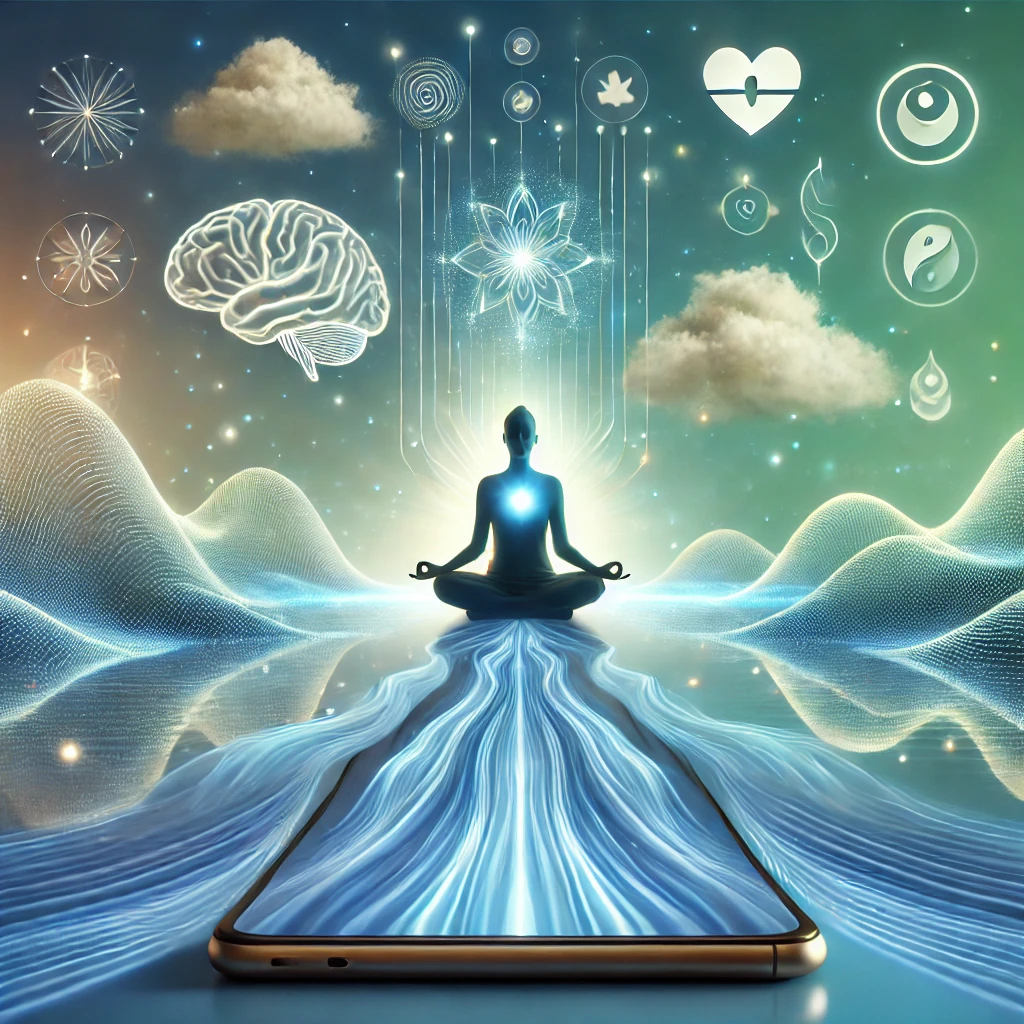Mindfulness and Meditation Apps: A Digital Path to Mental Wellness
Concern for mental health has grown in the fast-paced world of today. Our general well-being can be negatively impacted by the continual onslaught of stress, worry, and negative thoughts. Many people are using mindfulness and meditation techniques to combat these issues. A new generation of mindfulness and meditation applications has emerged as a result of the fusion of these age-old methods with contemporary technology.
The Science Behind Mindfulness and Meditation
Although meditation and mindfulness have been used for millennia, scientific studies have only just started to identify the underlying mechanisms. These techniques have been demonstrated to stimulate particular brain regions, enhancing focus, lowering tension, and encouraging relaxation. Frequent practice can improve cognitive and emotional control by altering the structure and function of the brain.
The Impact on Human Life
Apps for meditation and mindfulness have completely changed how people can access these activities. They provide a practical and approachable means of integrating meditation and mindfulness into everyday life. The following are some advantages of utilizing these apps:
• Less tension and Anxiety: Consistent practice helps lessen the signs of depression, anxiety, and tension.
• Increased Focus and Concentration: Mindfulness practices can improve cognitive function and attention span.
• Improved Sleep Quality: Mindfulness exercises can help people relax and get better sleep.
• Improved Emotional Regulation: People can better control their emotions with the use of these apps.
Potential Challenges and Limitations
Apps for mindfulness and meditation have many advantages, but it’s crucial to understand their drawbacks:
• Screen Time: Too much screen time can have a detrimental effect on mental health, so it’s critical to strike a balance between using apps and offline activities.
• Over-reliance: The full benefits of mindfulness and meditation may be limited if apps are the only thing used.
• Absence of Personal advice: Compared to in-person therapy or meditation sessions, apps might not offer the same degree of individualized advice.
Improving Mindfulness and Meditation Apps
Developers can think about the following to increase these apps’ efficacy even more:
• Personalized Experiences: Adapting procedures and material to each person’s requirements and preferences.
• Gamification Elements: Including elements of a game to boost motivation and engagement.
• Community Building: Establishing virtual groups where people can interact and help one another.
• Integration with Other Health applications: To offer a comprehensive approach to wellbeing, mindfulness and meditation are combined with other health tracking applications.
A Real-World Example: Headspace
The well-known mindfulness and meditation software Headspace provides sleep casts, guided meditations, and productivity and focus activities. People of all ages favor the app because of its fascinating content and easy-to-use interface.
Apps for meditation and mindfulness have a bright future. We may anticipate seeing even more creative and useful applications that can make people’s lives happier and healthier as technology develops. These applications have the power to revolutionize mental health and wellbeing globally by fusing traditional knowledge with cutting-edge technology.

Leave a Reply